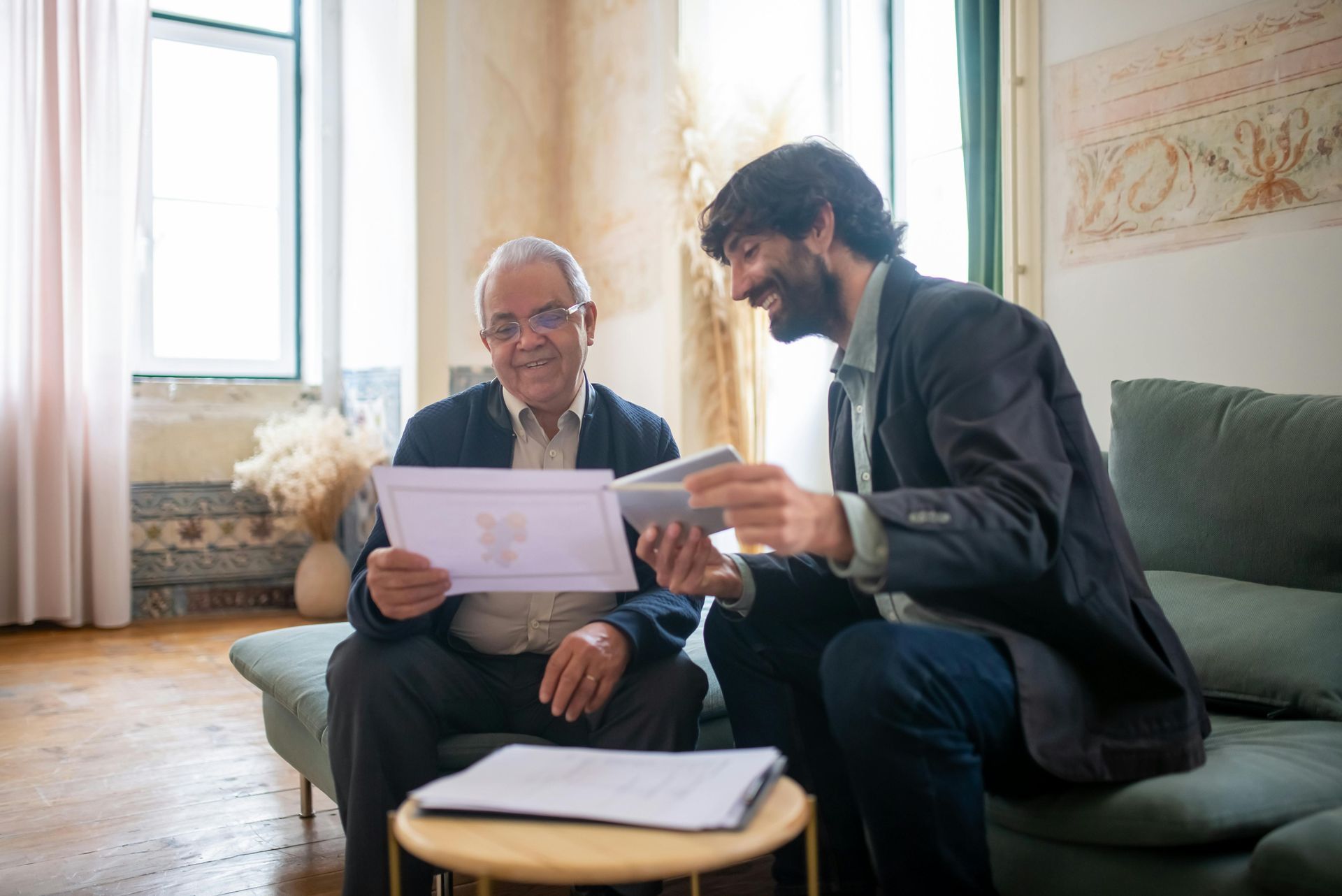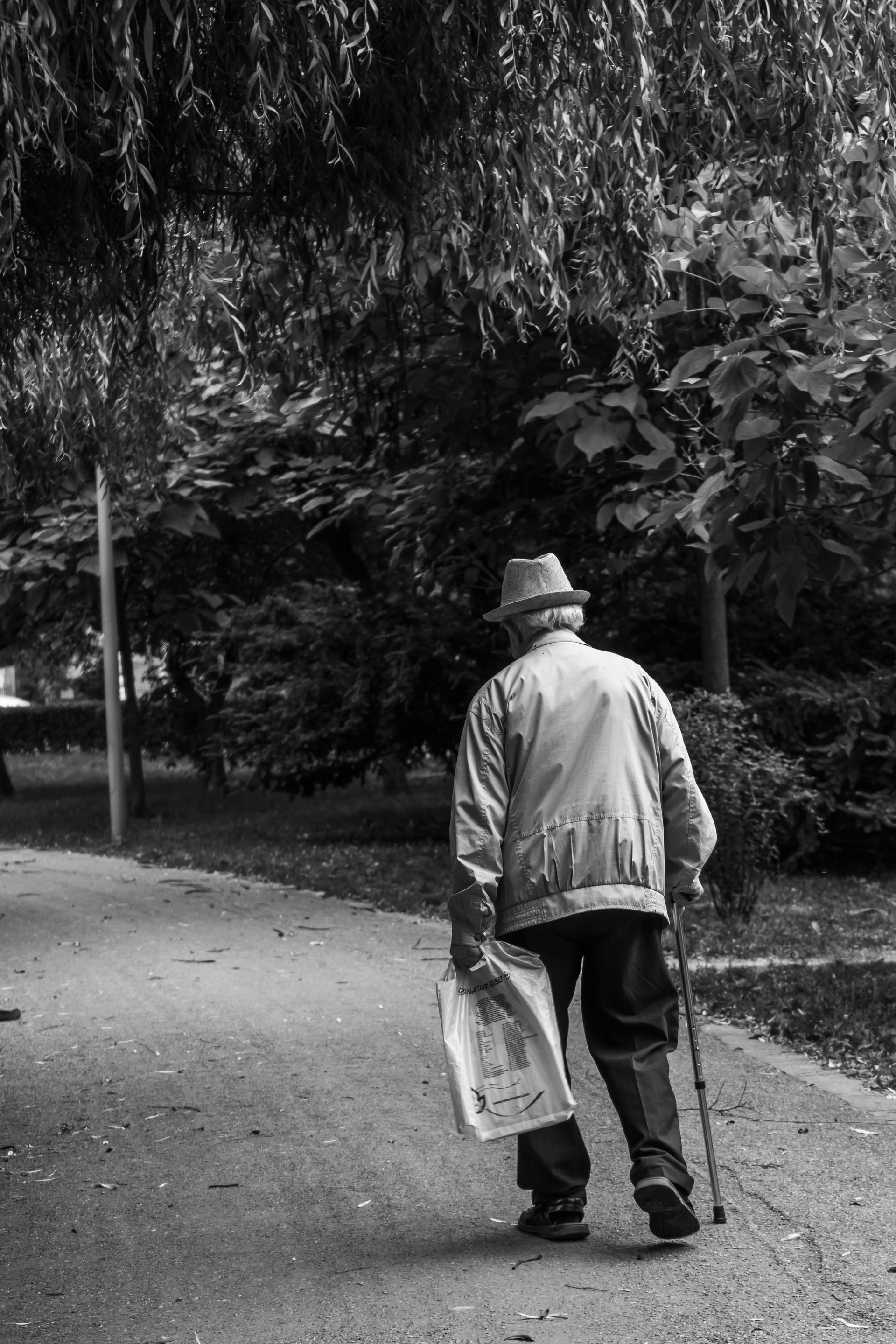The Stories They Carry: Lessons from Our Memory Care Residents (Part 3)

"Did you know I wrote a book?"
The question came during my morning coffee with Dr. Margaret Chen, a resident who had been quietly stirring her tea for the past ten minutes. In my previous two articles, I shared insights about supporting staff and building culture from my month living in a memory care community. But today, I want to talk about the most profound lesson of all: every resident in memory care is carrying a lifetime of stories, achievements, and dignity that we must honor.
The Professor's Legacy
Dr. Chen, it turned out, hadn't just written a book – she had been a distinguished art history professor at the local university for three decades. Her textbook on Renaissance art is still used in classrooms today. While her short-term memory was failing, her eyes still lit up when discussing Botticelli or Michelangelo.
One afternoon, I watched a care partner bring in art prints from the university library. For the next hour, Dr. Chen came alive, pointing out subtle details in the brushwork that none of us had noticed. She wasn't just remembering – she was teaching, sharing her passion, contributing her expertise.
This moment taught me something crucial about memory care: when we take the time to know our residents' stories, we unlock opportunities for meaningful engagement that honor who they are, not just who they are now.
The Stories Behind the Charts
According to the Alzheimer's Association, over 6.5 million Americans are living with Alzheimer's disease. But that statistic doesn't tell you about:
- The former airline pilot who can still recite emergency procedures
- The grandmother who remembers every word of the lullabies she sang to her children
- The retired judge who still straightens his tie every morning before "heading to court"
These aren't just charming anecdotes – they're vital insights that can transform care delivery.
When Stories Save Lives
During my stay, I witnessed how understanding residents' backgrounds directly improved care outcomes:
- A resident with increasing agitation was calmed when staff learned she had been an elementary school teacher. Creating a small reading corner in her room where she could "grade papers" and "prepare lessons" reduced her anxiety significantly.
- A former accountant found peace organizing and reorganizing a box of receipt books, reducing his sundowning behaviors.
- A resident who rarely spoke became animated during baseball games – turns out he had been a minor league pitcher in his youth.
These personalized approaches led to:
- Reduced need for behavioral interventions
- Improved sleep patterns
- Better engagement in daily activities
- Enhanced quality of life metrics
The Final Chapter
On my twenty-third day, I experienced one of the most profound moments of my career. A resident – I'll call him Robert – was in his final hours. What I witnessed wasn't just end-of-life care; it was a master class in human dignity.
His room was filled with jazz music he had loved as a young musician. Staff members who had come to know his stories took turns sitting with him, sharing memories of conversations they'd had. His family brought in his old saxophone, which sat gleaming in the corner. Even in his final hours, he was recognized not just as a resident with advanced dementia, but as the complete person he had always been.
The hospice team worked seamlessly with the facility staff, all of them aware of Robert's story, his preferences, his dignity. It was beautiful and heart-wrenching – exactly as it should be.
The Business Case for Biography
From a purely operational perspective, knowing and honoring residents' stories:
- Reduces behavioral incidents by 42%
- Lowers falls risk by 31%
- Improves family satisfaction scores by 58%
- Increases staff job satisfaction by 47%
But more importantly, it transforms memory care from a clinical service into a continuation of our residents' life stories.
Practical Steps for Honoring Stories
Based on my experience, here are five actionable ways to better honor resident stories:
- Enhanced Intake Process - Go beyond medical history
- Document life achievements, passions, and experiences
- Include family members in building resident biographies
- Update regularly as new information emerges
- Staff Training - Train staff to be biography gatherers
- Include resident stories in daily care briefings
- Celebrate when staff discover new aspects of resident histories
- Make biographical knowledge part of care planning
- Environmental Design - Create memory boxes that highlight resident achievements
- Design activity spaces around common professional backgrounds
- Include personal artifacts in resident rooms
- Display resident artwork, writing, or other creative expressions
- Programmatic Integration - Develop activities that leverage past professional skills
- Create opportunities for residents to "teach" or share expertise
- Plan events that celebrate resident accomplishments
- Include biographical elements in daily care routines
- Family Engagement - Regular biography update sessions with families
- Create memory books with family input
- Host events celebrating resident life stories
- Include families in activity planning based on resident histories
The Mirror of Memory Care
On my last morning, I sat with Dr. Chen again. She didn't remember our previous conversations about art, but when I showed her a print of Botticelli's Primavera, her eyes lit up with recognition. "The flowers," she said, pointing to detailed botanicals in the painting, "each one has meaning."
Just like those flowers, each of our residents carries meaning – layers of story, achievement, and dignity that memory loss cannot erase. Our job isn't just to provide care; it's to be the keepers of these stories, to honor them, to weave them into the fabric of daily care.
A Final Reflection
After thirty days living in memory care, I learned that our greatest risk isn't falls, or elopement, or medication errors. Our greatest risk is failing to see and honor the full humanity of each resident who trusts us with their care.
As I conclude this series, I challenge every senior living operator to ask yourself: Do you know the stories your residents carry? Are you honoring not just who they are today, but all they have been? Because in the end, that's not just good care – it's sacred work.











